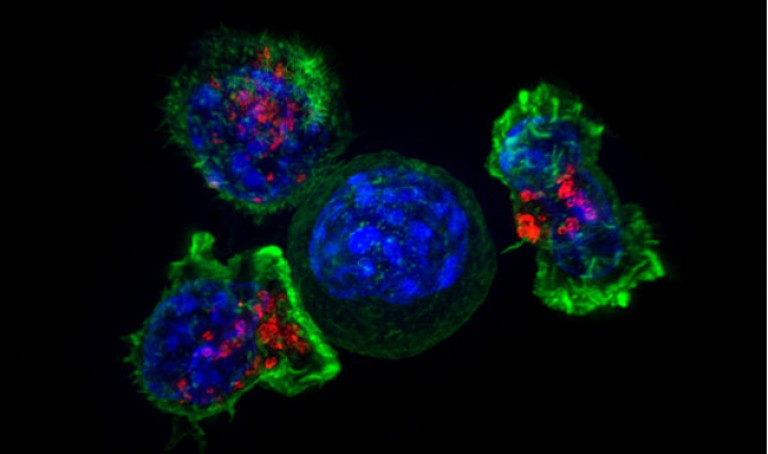
AsianScientist (May 16, 2014) – Scientists have made headway in the treatment of the aggressive brain cancer glioblastoma multiforme (GBM) with the use of immunotherapy. This study was published in the journal Cancer Research.
Study leader, Professor Rajiv Khanna of the QIMR Berghofer Medical Research Institute, said most of the study participants lived much longer than the six-month prognosis normally given to a patient with recurrent GBM, and some patients showed no signs of disease progression.
“It is early days, but this is exciting,” Khanna said. “Survival rates for this aggressive cancer have barely changed in decades. There is an urgent clinical need for new treatments.
“If this treatment can buy patients more time, then that is a big step forward.”
GBM is the most common malignant brain cancer and is very difficult to treat. Despite surgery, radiotherapy and chemotherapy, less than 10% of patients survive beyond five years.
This study built on previous research which found that many brain tumors express cytomegalovirus (CMV) proteins. About half of the population carries the virus, but usually show no symptoms.
Khanna developed a technique to modify the patients’ T-cells in the laboratory, effectively “training” them to attack the virus, and then returned them to the patient’s body while keeping them on chemotherapy. It is thought that the killer T-cells destroy the cancer cells along with the virus-infected cells.
“It’s becoming increasingly clear that immunotherapy – manipulating a person’s own immune system – is a rich new frontier for cancer treatment,” Khanna said.
The Phase I trials were conducted at Brisbane’s Wesley Hospital, under the leadership of neurosurgeon Professor David Walker.
“Working with patients with malignant brain tumors can be distressing, because we know so many will succumb,” Walker said. “But this new branch of therapy lets us offer some hope that the future is going to be brighter, that new and innovative treatments mean things will hopefully improve in the future.
“We have a long way to go, and there is hard work to be done, but we seem to be on the right track, and it is a pleasure to work with scientists at QIMR Berghofer to try to make a real difference.”
The research team is now keen to begin the next phase of trials, involving patients at an earlier stage of the cancer’s development.
“These would be patients who’ve had the standard treatments on offer – surgery, then radiotherapy or chemotherapy – and haven’t had a recurrence,” Professor Khanna said.
“We hope that the treatment can be even more effective if given at an earlier stage of the disease.”
The article can be found at: Schuessler et al. (2014) Autologous T cell Therapy for Cytomegalovirus as a Consolidative Treatment for Recurrent Glioblastoma.
———
Source: QIMR Berghofer Medical Research Institute.
Disclaimer: This article does not necessarily reflect the views of AsianScientist or its staff.












